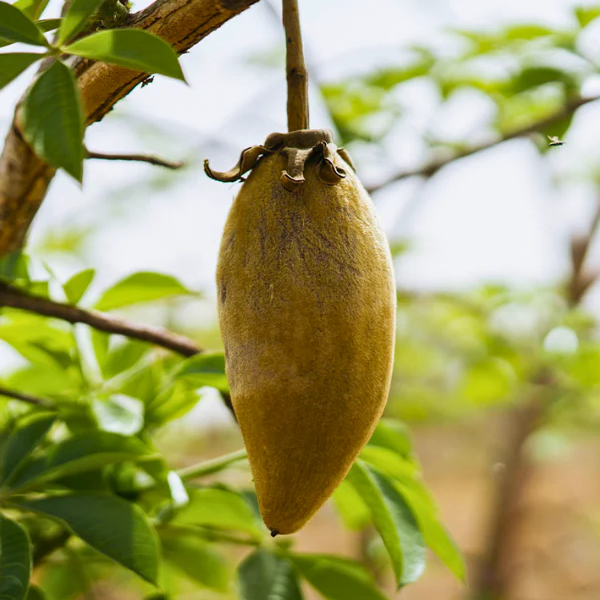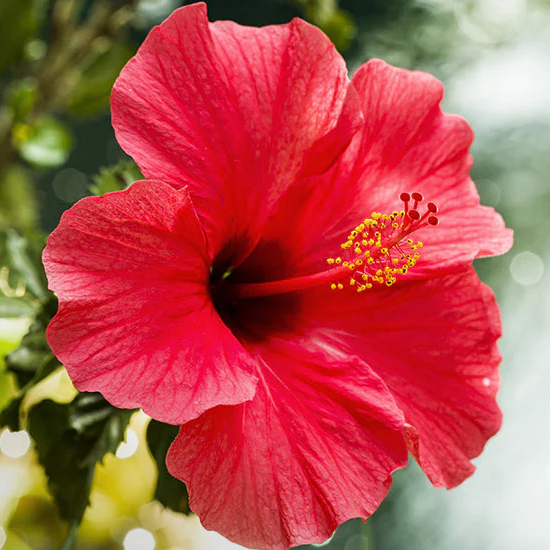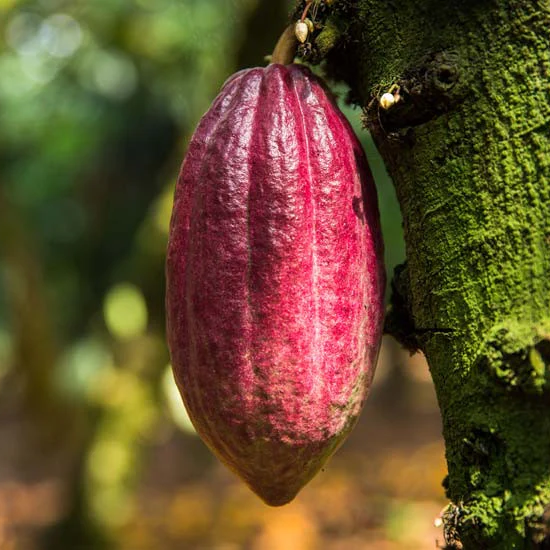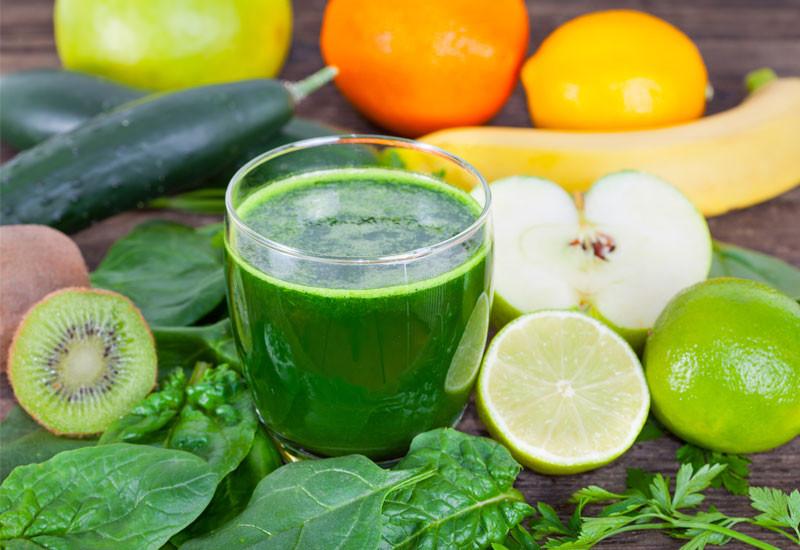Detox has become a hot (but confusing!) topic in recent years, and there are certainly many misconceptions about it. What does it actually mean? Why should we detox? And how can we go about it safely?
Nutritional Therapist Rose Glover answers all our questions.
What's detox all about?
It can be argued that your overall health can largely be determined by the ability of your body to detoxify itself. Dry, blotchy and pimply skin, headaches, fatigue, stubborn weight, allergies, digestive issues, and generally feeling under the weather are all signs that you may need to press the ‘reset’ button.
But don’t worry if the idea of a detox sounds intimidating; it’s really just about getting back to basics: nourishing your body with clean foods, giving your digestion a breather and stimulating the parts of your body responsible for cleansing and eliminating.
Why detox?
Nature gave you an amazing built-in detox organ: The liver. This super-hero organ detoxifies harmful substances by a complex series of chemical reactions. In addition, your digestive tract, kidneys, skin and lungs are also detoxification and elimination organs, which all work together to keep your body in tip-top condition by eliminating toxins and other unwanted substances.
However, your body’s natural detox systems often need help. The truth is, many of us simply aren’t getting all the nutrients we need to effectively deal with all the internal and external toxins thrown at us by modern life: such as pollution, stress, poor diet, alcohol, prescription drugs, sedentary lifestyles, pesticides, additives and chemicals from beauty cosmetics.
If nutrition is compromised or an individual’s toxin exposure is high, the liver won’t have everything it needs to do its job efficiently. The result? We gain weight, get bloated, lose our natural energy and vitality, and of course develop diseases.
What should you eat on a detox?
Detoxes don’t necessarily mean juice cleanses (in fact, they don’t have to contain any juices at all if you don’t have a juicer!). In fact, I recommend you don’t give up solid food altogether during a detox or cleanse, as it can have unwanted effects on your blood sugar balance and hormones.
By all means, do include daily smoothies and juices - they are a really great way of getting a massive hit of nutrients straight into your system to really super-charge your cleanse. Just be sure the juices and smoothies are vegetable-based with no more than two pieces of fruit per serving. Smoothies are great as you can super-charge them with nutrient-dense superfood powders such as Baobab and Moringa – more nutrients equals more effective detoxification!
The detoxification process actually requires protein and essential fats, so it’s vital you don’t cut these out. Your meals should be mostly vegetables, lean protein sources (plant protein or minimal amounts of organic free-range chicken or oily fish), some fruits, raw nuts and seeds, and perhaps a minimal amount of gluten-free grains like brown rice or quinoa. Also, try to eat a light and early dinner (a soup or some veggies), no later than 7pm.
What should you avoid?
Identify your toxins: stimulants such as alcohol, caffeine, tobacco and sugar are big no no’s. Choose organic produce wherever possible and avoid all processed, refined foods. Gluten should also be avoided for a detox, as this can be highly inflammatory in the body and takes a lot of digestive power.
Toxins can also be produced from within the body: stress, emotional upset, worry or anxiety all cause toxins to be released by the body as well as using up important nutrients at a rate of knots. Take time to relax with whatever works for you, such as yoga, reading, warm baths and listening to gentle music.
You can’t detoxify your body if your environment or your mindset is toxic. This is a great time to also declutter your home and realign yourself by reflecting, meditating and practising deep breathing (remember the lungs are detoxification organs too!).
Make sure you are living in a comfortable, clean home and surround yourself with people who treat you with love. And remember, self-care isn’t just what you put into your mouth, it’s what you say to yourself and how you treat yourself daily – so be nice to yourself!
What about exercise?
You don’t necessarily have to sweat it out at the gym 5 days a week during your cleanse, but it is a good idea to keep active. Try to move your body for half an hour each day by walking briskly, cycling, swimming or jogging.
Listen to your body and don’t override its cues. If you're feeling lethargic, some exercise may help boost your energy, but if your body wants to sleep, then obey! Many yoga poses, like twists and bends, are excellent for the detoxification process.
What supplements should you take?
-
A multi-vitamin/ mineral: Detoxification is a nutrient-hungry process and requires a lot of nutrients to do its job efficiently so adding natural multi-vitamins and minerals to your diet can help bump up the process.
- The African superfruit Baobab is exceptionally rich in vitamin C, fibre and antioxidants. Baobab powder is sweet and citrussy and is delicious sprinkled onto breakfast cereal or yoghurt or mixed into smoothies, juices or water.
- The superleaf Moringa is one of the most nutrient-dense leaves on the planet. It is rich in 5 essential vitamins and minerals, 25% plant protein, 31% fibre and high in antioxidants. With a green spinachy flavour, it is ideal for super-charging green juices and smoothies or adding to savoury dishes as a 'superfood seasoning'.
- Omega 3 fats: These play an essential role in detoxification, and the majority of people simply aren’t getting enough.
- Herbal supplements like milk thistle will also get the detox engine going!






